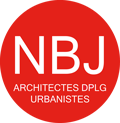
PHILOSOPHIE
Etablir les conditions de création d’un projet n’est pas chose aisée. Comment crée-t-on ? Quels mécanismes s’opèrent, quels sont les liens qui se mettent en oeuvre ? Difficile à décliner en une méthode et exposer un processus précis. En tous les cas, nous n’ambitionnons pas d’y répondre. Alors plutôt que de chercher à théoriser notre process de production, nous avons résolument fait le choix du « faire ». C’est justement par le projet, par la production et la diversification des pratiques que nous trouvons notre équilibre de création et une capacité d’action. La diversité est, pour nous, un moteur de production. Nous réfutons un positionnement de spécialistes. Ce qui ne signifie nullement que la spécialisation est néfaste, bien au contraire, mais juste qu’elle n’est pas propice à l’élaboration d’une pensée ouverte en capacité d’appréhender la complexité de notre monde et de fait de nous offrir les outils pour agir dessus, pour faire. Ainsi un outil nous apparaît comme évident : l’expérimentation. La dimension expérimentale est essentielle, car c’est d’elle qu’il est possible tirer les bases de travail pour les transcrire dans le projet. Ceci nous apparaît comme une forme de production de connaissances utilisables. L’expérimentation est à la fois la source et l’outil permettant d’explorer les possibles, car elle se posit
ionne dans un processus réversible. Essayer encore et encore…
Etablir les conditions de création d’un projet n’est pas chose aisée. Comment crée-t-on ? Quels mécanismes s’opèrent, quels sont les liens qui se mettent en oeuvre ? Difficile à décliner en une méthode et exposer un processus précis. En tous les cas, nous n’ambitionnons pas d’y répondre. Alors plutôt que de chercher à théoriser notre process de production, nous avons résolument fait le choix du « faire ». C’est justement par le projet, par la production et la diversification des pratiques que nous trouvons notre équilibre de création et une capacité d’action. La diversité est, pour nous, un moteur de production. Nous réfutons un positionnement de spécialistes. Ce qui ne signifie nullement que la spécialisation est néfaste, bien au contraire, mais juste qu’elle n’est pas propice à l’élaboration d’une pensée ouverte en capacité d’appréhender la complexité de notre monde et de fait de nous offrir les outils pour agir dessus, pour faire. Ainsi un outil nous apparaît comme évident : l’expérimentation. La dimension expérimentale est essentielle, car c’est d’elle qu’il est possible tirer les bases de travail pour les transcrire dans le projet. Ceci nous apparaît comme une forme de production de connaissances utilisables. L’expérimentation est à la fois la source et l’outil permettant d’explorer les possibles, car elle se posit
ionne dans un processus réversible. Essayer encore et encore…
C’est dans divers champs, milieux, environnements que nous ambitionnons agir. Pour ce faire, nous avons souhaité, au fil des ans construire notre propre champ d’action et de création. Cet univers qui nous est propre est multiple, diversifié, complexe, éparpillé diraient certains, mais pourtant unique à nos yeux car tissé de liens, d’aventures, d’ambitions, d’erreurs, de réussites, d’envie et surtout de beaucoup de plaisir de faire ensemble. Notre univers s’appuie en quelque sorte sur ce que disait Buckminster Fuller : « Tu ne changeras jamais les choses en combattant ce qui existe déjà. Pour changer les choses, construis un nouveau modèle qui rendra l’ancien obsolète. »

PHILOSOPHY
